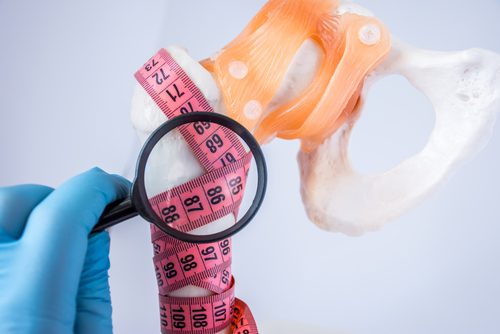Growth, Sex Hormone Combo May Prevent Bone Deterioration in Young Adults with PWS
Written by |

Long-term use of growth hormone therapy in young adults with Prader-Willi syndrome (PWS) fails to prevent bone deterioration. But a combination of growth hormone therapy and sex hormone therapy may have therapeutic potential for PWS patients, a new study suggests.
The findings were reported in a study titled, “Bone mineral density in young adults with Prader-Willi syndrome: a randomized, placebo-controlled, cross-over GH trial,” published in the journal Clinical Endocrinology.
Treatment with growth hormone is standard of care for children with PWS. This strategy helps to improve several of the characteristic symptoms of the genetic disorder. Growth hormone therapy has shown to effectively enhance mental and motor development, cognition, adaptive functioning, and bone mineral density (BMD) in these children.
However, this treatment option is approved only for children with PWS and adults with the disease who are unable to naturally produce growth hormone. For other patients, growth hormone therapy is ceased as a child reaches adult height. But previous evaluations of adult patients who continued the therapy showed better BMD than adult patients who did not continue growth hormone treatment.
Researchers at the Dutch Growth Research Foundation conducted a clinical trial (NTR1038) to better understand the potential role of growth hormone in preventing bone degradation in adult patients with PWS. The study included 27 young adults with genetically confirmed PWS who were receiving growth hormone therapy at the start of the trial.
Participants were randomized to receive 0.67 mg/m2 per day of injectable Genotropin (recombinant somatropin), a growth hormone substitute developed by Pfizer, or placebo for one year. After this period, the groups were crossed over to receive the alternative treatment for another year.
Evaluations of the participants at the beginning of the study revealed that PWS patients had significantly lower total body BMD levels than healthy matched peers. During the two years of treatment, no significant changes were reported in total body BMD. However, a significant decline of spine BMD was seen regardless of the treatment received.
In general, treatment with Genotropin was found to have similar effects to placebo regarding total body and spine BMD.
Young adult and adult patients with PWS may have deficient production of sex hormones, so administration of sex steroid replacement therapy (SSRT) is common. Because BMD is influenced by hormones, the researchers wondered if SSRT could alter the effects of growth hormone in BMD.
Of the 27 participants in the study, 11 also were receiving SSRT during the trial. Baseline levels of BMD were similar between SSRT-treated and non-treated patients.
In contrast, disease progression during the two-year period was significantly different between the two groups. While PWS patients who did not receive SSRT experienced total body and spine BMD decline, those receiving SSRT experienced an improvement in total body BMD and stable spine BMD.
“It seems that GH [growth hormone] is not able to prevent this decline in BMD unless it is combined with SSRT, indicating that sex steroids play a major role in the development and conservation of BMD in adolescents and (young) adults with PWS,” the researchers said.
The study suggested that SSRT should be considered in adolescents with PWS to improve bone health in adulthood, they added. However, further studies are needed to confirm the results of this study and to evaluate optimal dosing and starting age, as well as possible long-term effects of the treatment combo, they said.





